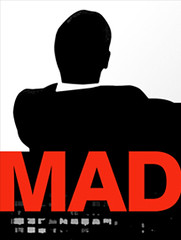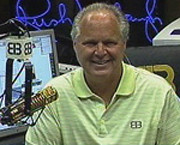A few months ago, I found myself in a semi-heated discussion with an image consultant (a.k.a. personal branding guru). There isn't any transcript of the conversation because it didn't happen online. It happened offline, where many conversations about what I write here sometimes occur.
The catalyst for the call was a post — Branding: Why I Stopped Worrying About Being Batman — and why I did such a great disservice the emergent field of image consulting and personal branding. The entire post, she said, was borderline hypocritical given that I had once hired an image consultant.
Out of context, she had a point. Within context, not so much.
I hired an image consultant a few years ago because I knew there is some truth to Color Seasons. Different skin colors and complexions look better with different colors and horrendous with others. And while I know a few things about design and fashion, I had no clue what colors worked for me.
So, I found someone better at this stuff than me to help figure it out. And for several hours, she held up a hundred colors in order to give me a palette to test against the next time I went shopping, which is pretty rare (and half the time I forget the palette anyway). But I drew the line on everything else.
The reason is simple enough. I have a difficult time reconciling the dress for success concept of personal branding, especially as it has permeated social networks with some personal branding folks telling people that their social network pics provide the first impression of who you are to the world.
This worry over first impressions doesn't end with fashion. It seems to encompass everything: what we write, like, share, read, see, comment about, respond to, how we respond, when we respond, and a long list of more indicators online and offline. It's not much different than those "tells" people warn you about — offline tips like shining your shoes or only salting food after you taste it.
Sure, I suppose I could argue that some personal branding concepts work to some degree, but one has to be careful. Not all, but many personal branding consultants forget that real "branding" is not about style. It's about substance. It's about self-awareness. It's about authenticity. And it's about you.
I believe this so strongly that when the University of Nevada, Las Vegas, asked if I could teach an experimental seminar that could help people with their professional development in order to gain a competitive advantage in the job market (or as account executives and salespeople), I said absolutely.
Projecting A Professional Image at the University Of Nevada, Las Vegas.
The 3-hour class will be held from 6 p.m. to 9 p.m. on Jan. 31. The focus is on developing an authentic professional image for a competitive job market and economic marketplace, including the challenge that many people have with reconciling their so-called personal and professional separations, online, offline, wherever. Anyone attending can expect something different than the standard fare.
You see, it seems to me that you can wrap up any product in fancy packaging, but that doesn't make it effective in the environment where it will be used. This is the cornerstone of my Fragile Brand Theory, which suggests that brand failures or reputation crashes do not happen because of the nature of people, places, or things. They happen because persons, places, or things pretend to be something else.
This is why some executives give speeches wearing nothing more than pajamas and others put on expensive suits for the most casual of meetings. The notion that we must dress for success is somewhat of a misnomer. It's the substance, not the style, that drives reputation. Style merely helps convey it.
The class will help sort it out, including that style doesn't just say something about an individual. It says something about how we hope to connect with the anticipated audience. Ergo, construction workers tend to clam up on a construction site if you try to interview them in a suit and wedding guests would find someone wearing pajamas a bit too disruptive for an event celebrating someone else.
Right. Canned packaging disrupts as much as looking unkept. So this class starts where it counts.
• How an authentic professional image differs from personal branding
• How to develop messages that can set yourself apart from competitors
• How to maintain authenticity and empathy in differing environments
• How to reconcile who you are on social networks, without faking it
• How to feel good about who you are and add substance to the offering
Registration for the experimental class can be found here. I call it experimental because this one-time session will be used to gauge interest in a future 3-part workshop, with take home assignments and exercises. After the class concludes, at least one presentation deck will be published within a post.
The catalyst for the call was a post — Branding: Why I Stopped Worrying About Being Batman — and why I did such a great disservice the emergent field of image consulting and personal branding. The entire post, she said, was borderline hypocritical given that I had once hired an image consultant.
Out of context, she had a point. Within context, not so much.
I hired an image consultant a few years ago because I knew there is some truth to Color Seasons. Different skin colors and complexions look better with different colors and horrendous with others. And while I know a few things about design and fashion, I had no clue what colors worked for me.
So, I found someone better at this stuff than me to help figure it out. And for several hours, she held up a hundred colors in order to give me a palette to test against the next time I went shopping, which is pretty rare (and half the time I forget the palette anyway). But I drew the line on everything else.
The reason is simple enough. I have a difficult time reconciling the dress for success concept of personal branding, especially as it has permeated social networks with some personal branding folks telling people that their social network pics provide the first impression of who you are to the world.
This worry over first impressions doesn't end with fashion. It seems to encompass everything: what we write, like, share, read, see, comment about, respond to, how we respond, when we respond, and a long list of more indicators online and offline. It's not much different than those "tells" people warn you about — offline tips like shining your shoes or only salting food after you taste it.
Sure, I suppose I could argue that some personal branding concepts work to some degree, but one has to be careful. Not all, but many personal branding consultants forget that real "branding" is not about style. It's about substance. It's about self-awareness. It's about authenticity. And it's about you.
I believe this so strongly that when the University of Nevada, Las Vegas, asked if I could teach an experimental seminar that could help people with their professional development in order to gain a competitive advantage in the job market (or as account executives and salespeople), I said absolutely.
Projecting A Professional Image at the University Of Nevada, Las Vegas.
The 3-hour class will be held from 6 p.m. to 9 p.m. on Jan. 31. The focus is on developing an authentic professional image for a competitive job market and economic marketplace, including the challenge that many people have with reconciling their so-called personal and professional separations, online, offline, wherever. Anyone attending can expect something different than the standard fare.
You see, it seems to me that you can wrap up any product in fancy packaging, but that doesn't make it effective in the environment where it will be used. This is the cornerstone of my Fragile Brand Theory, which suggests that brand failures or reputation crashes do not happen because of the nature of people, places, or things. They happen because persons, places, or things pretend to be something else.
This is why some executives give speeches wearing nothing more than pajamas and others put on expensive suits for the most casual of meetings. The notion that we must dress for success is somewhat of a misnomer. It's the substance, not the style, that drives reputation. Style merely helps convey it.
The class will help sort it out, including that style doesn't just say something about an individual. It says something about how we hope to connect with the anticipated audience. Ergo, construction workers tend to clam up on a construction site if you try to interview them in a suit and wedding guests would find someone wearing pajamas a bit too disruptive for an event celebrating someone else.
Right. Canned packaging disrupts as much as looking unkept. So this class starts where it counts.
• How an authentic professional image differs from personal branding
• How to develop messages that can set yourself apart from competitors
• How to maintain authenticity and empathy in differing environments
• How to reconcile who you are on social networks, without faking it
• How to feel good about who you are and add substance to the offering
Registration for the experimental class can be found here. I call it experimental because this one-time session will be used to gauge interest in a future 3-part workshop, with take home assignments and exercises. After the class concludes, at least one presentation deck will be published within a post.





























